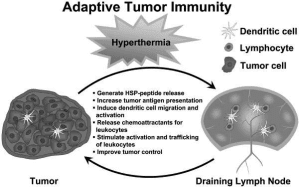Alternative Cancer Treatment News
Vitamn C and Cancer
BY DR. GARCIA AND DR. PEREZ
Question: Many clinics give Vitamin C by IV. Have there been any studies to show how this treatment can benefit cancer patients ?
Answered by Dr. Eduardo Ariel Perez Carbajal and Dr. Juan Manuel Garcia DeLeon Buenfil - BioScience Research Institute, Tijuana, Mexico.
A number of case-control studies have investigated the role of vitamin C in cancer prevention. Most have shown that higher intakes of vitamin C are associated with decreased incidence of cancers of the mouth, throat and vocal chords, esophagus, stomach, colon-rectum and lung. Because the possibility of bias is greater in case-control studies, prospective studies are generally given more weight in the evaluation of the effect of nutrient intake on disease.
In general, prospective studies in which the lowest intake group consumed more than 86 mg of vitamin C daily have not found significant cancer risk reductions found them in people consuming at least 80 to 110 mg of vitamin C daily.
One study of 870 men over a period of 25 years found that those who consumed more than 83 mg of vitamin C daily had a striking 64% reduction in lung cancer compared with those who consumed less that 63 mg per day.
Although most large studies found no association between breast cancer and vitamin C intake, two recent studies found dietary vitamin C intake to be inversely associated with breast cancer risk in certain subgroups. In the Nurses’ Health Study, premenopausal women with a family history of breast cancer who consumed an average of 205 mg/day of vitamin C from foods had a 63% lower risk of breast cancer than those who consumed an average of 70 mg/day of vitamin C.
In the Swedish Mammography Cohort, women who were overweight and consumed an average of 110 mg/day of vitamin C had a 39% lower risk of breast cancer compared to overweight women who consumed an average of 31 mg/day.
A number of observational studies have found increased dietary vitamin C intake to be associated with decreased risk of stomach cancer, and laboratory experiments indicate that vitamin C inhibits the formation of carcinogenic compounds in the stomach.
Infection with the bacteria, helicobacter pylori (H pylori ) is known to increase the risk of stomach cancer and also appears to lower the vitamin C content of stomach secretions. Although two intervention studies did not find a decrease in the occurrence of stomach cancer with vitamin C supplementation, more recent research suggests that vitamin c supplementation may be a useful addition to standard H. pylori eradication therapy in reducing the risk of gastric cancer.
Evidence suggests that the more vitamin C that you ingest in your diet, the healthier you will be. Here at BioScience Research Institute, vitamin C is widely used in many of our programs.
We use high/mega dose IV therapy for many health issues, including infections, heavy metal toxicity, cancer, wellness, joint support, immune support and detoxification. –Dr. Perez and Dr. Garcia
When you subscribe to the blog, we will send you an e-mail when there are new updates on the site so you wouldn't miss them.





Comments